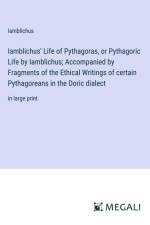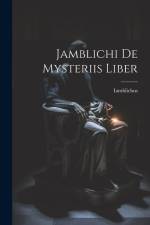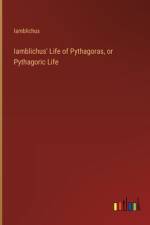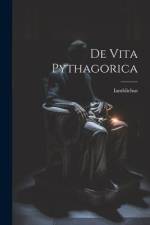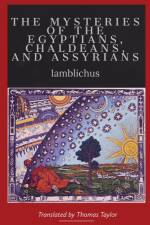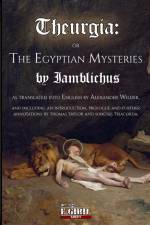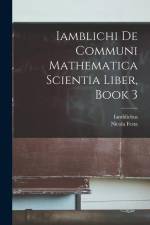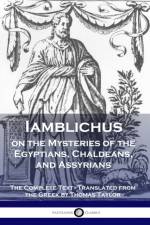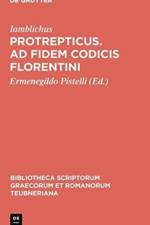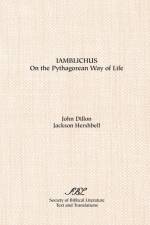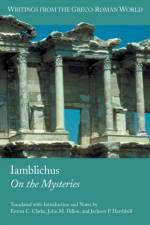av Iamblichus
351
This volume, "On the Mysteries," by Iamblichus (Abamun), presents a distinctive form of scripture that is deeply rooted in the Ancient Egyptian religious tradition. Unlike most remnants of Ancient Egyptian texts, which often take different forms, this work employs a teacher-disciple dialogue format similar to that found in Eastern scriptures like the Bhagavad Gita and the Upanishads. This method of teaching may have been less common in ancient Egypt, especially prior to the period of conquest by Persians, Assyrians, Greeks, and Romans. The extensive question-and-answer format offers valuable insights into the spiritual practices of Ancient Egyptian and other mystery religions during that historical context.In today's world-characterized by a plethora of diverse religions, new-age philosophies, and social strife-Iamblichus' work encourages us to navigate the complexities of contemporary spiritual traditions. It invites readers to sift through the noise of religious fanaticism and widespread misconceptions to discover the true purpose of religion and the secret teachings that unveil the mysteries of life, enlightenment, and immortality. This text, written over two millennia ago, delivers wisdom that remains relevant and applicable to our modern challenges."On the Mysteries of the Egyptians, Chaldeans, and Assyrians," translated by Thomas Taylor, provides a profound exploration of the esoteric teachings of these ancient civilizations. Iamblichus, recognized as a practitioner of the Egyptian Mysteries, draws heavily from the Neterian philosophy of Ancient Egypt. His choice to adopt the name Abamun-meaning "heart of Amun"-reflects his deep connection to this spiritual tradition. Taylor's translation adds to the manuscript's credibility, ensuring that the essence of Iamblichus' teachings is preserved for contemporary readers, making this text an invaluable resource for anyone interested in ancient wisdom.Engaging with this manuscript offers numerous benefits, including a comprehensive understanding of the mysteries of life and the paths leading to enlightenment and immortality. The dialogues between teacher and disciple provide timeless insights that address contemporary issues such as religious fanaticism and the overwhelming cacophony of modern philosophies. Readers are guided toward a deeper understanding of the true purpose of religion, aiding in their spiritual growth and enlightenment.The manuscript also includes trilinear translations, enhancing the reader's comprehension of the original texts and bridging them to ancient teachings. It explores Kemet (Ancient Egypt) in depth, discussing the impacts of foreign invasions on spiritual practices while highlighting the resilience of Egyptian sages in preserving their traditions. The teachings of Abamun, in conjunction with those of Sage Djehuti (Thoth/Hermes), provide profound insights into Neterian philosophy, particularly during times of cultural and religious upheaval.In conclusion, "On the Mysteries" serves as a treasure trove of ancient wisdom that transcends time and space. The legitimacy of Iamblichus as a philosopher and mystic, paired with Thomas Taylor's meticulous translation, establishes this manuscript as a credible and invaluable resource. The teachings contained within offer timeless wisdom that can illuminate paths toward spiritual enlightenment and a deeper understanding of life's mysteries. I urge you to engage with this profound text, allowing the insights of the ancients to guide you on your journey toward spiritual growth and a more meaningful existence. Let the wisdom of Iamblichus resonate in your life, opening doors to deeper understanding and appreciation of the rich tapestry of ancient spiritual traditions.


